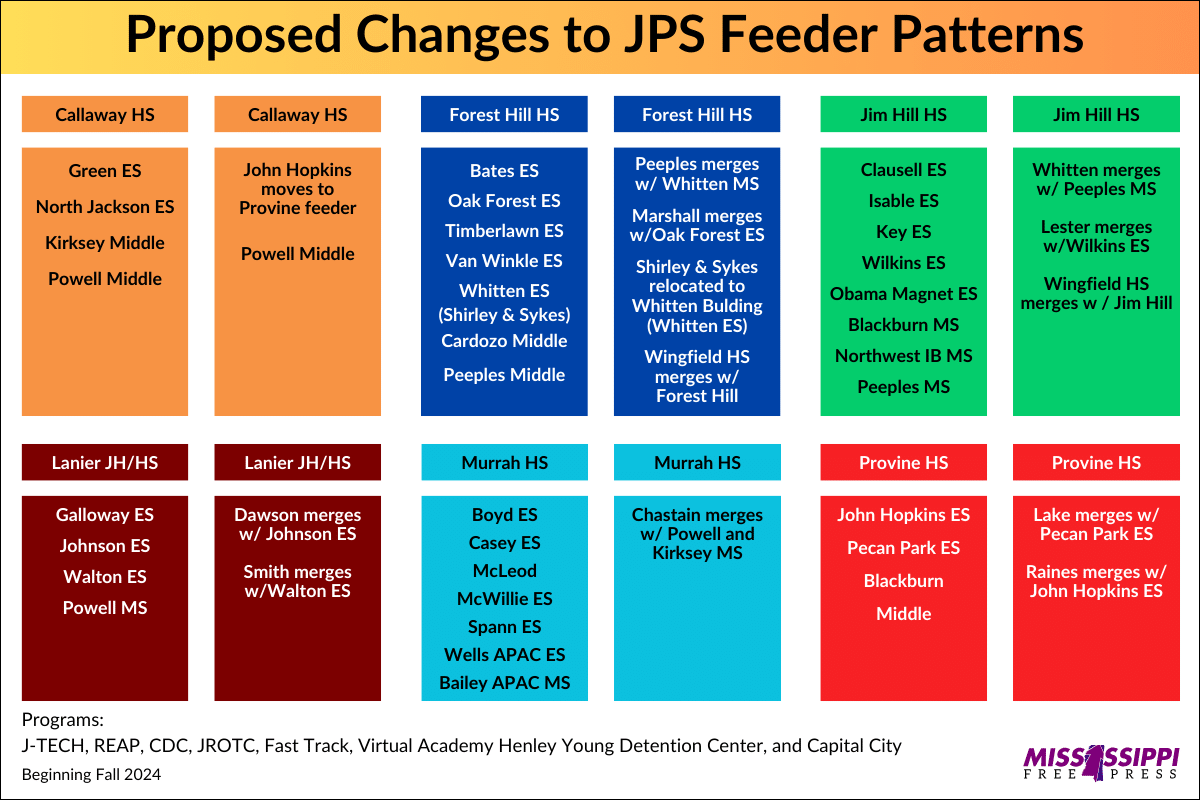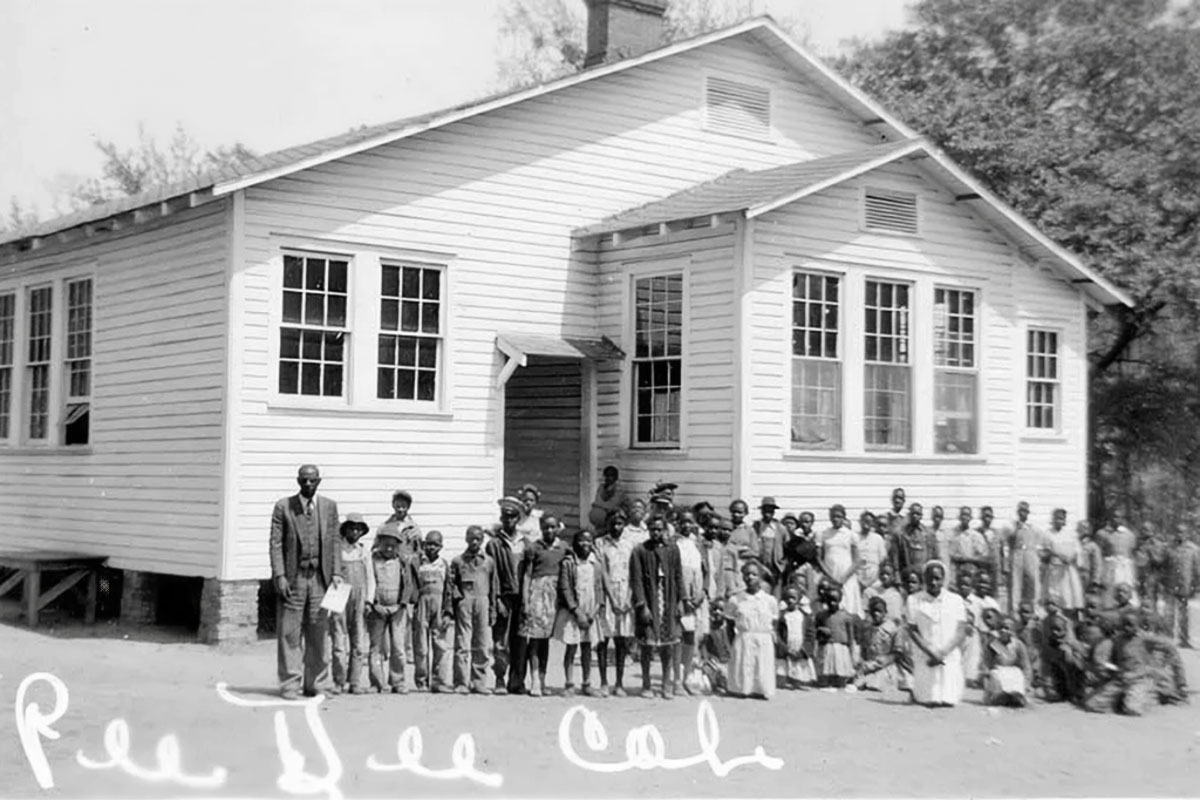“That is the South.
And I, who am Black, would love her
But she spits in my face.”
It is commonly believed that state-sanctioned segregation in America ended with integration. It is less commonly discussed how integration influenced the education of Black people in the South. The legacies of segregation and integration are murky to say the least, but Black schools in the South still exist, and it is the mere reality of that fact that brings the ideals of integration into question.
What characterized the entirely Black schools that existed prior to integration?
Were these places of only poverty, lack and a dearth of resources? Is there anything to be gleaned from these institutions today?
The short answer is that despite declining resources and against magnificent odds, the legacy of Black community, Black professionalism and Black scholarship categorized these schools. I am not now or in the future going to suggest that segregated schooling is the best option for anyone in America. I do however assert that the current way we educate Black children in the South has much to learn from its pre-integration ancestors.
In Mississippi’s capital city, Jackson Public Schools Superintendent Errick Greene has proposed to close 11 public schools that serve an overwhelmingly Black student population. This decision is apparently the result of a few reasons, declining enrollment chief among them. Declining enrollment in Jackson Public Schools goes hand in hand with a declining population in the capital city. People are leaving Jackson, Miss., and the largest school district in the city is losing students.
| The JPS School Board meeting on Dec. 5, 2023, included information on the district’s current plans and proposals regarding the closings of several school buildings to consolidate students, teachers and resources into other existing schools. |
More than 40 employees of the school district were disciplined following an investigation into testing irregularities. These employees worked in seven schools within the Jackson Public Schools District. The school district received a C rating from the state. The solution to middling schools, testing misconduct and falling population numbers in Jackson are beyond my control. However, there are potential solutions to building worthy and sustainable schools in Jackson and the South.
Produce A Plan to Support Scholars and Families
Before those solutions manifest, it’s important to fully acknowledge the lasting effects of what has been going on in Jackson and what may happen as the result of the proposed decision of JPS to consolidate and close schools. Jackson has suffered from a declining population. White flight, a declining tax base, the loss of businesses, loss of professionals, increasing crime rates, etc.—all these factors have had a detrimental effect on Jackson and JPS. It goes without saying that the people of Jackson have had more than their fair share of adversity.
As a former JPS teacher, I know how difficult it is to instruct scholars who are living in a city with these severe challenges. It’s hard to believe that closing 11 schools will solve any of these problems. That is because simply closing schools won’t solve these problems. In fact closing the schools will only temporarily alleviate JPS’s true problem, declining revenue. As long as citizens of Mississippi are voting with their feet and leaving the areas that JPS serves, the school district will continue to struggle.
Additionally, closing predominantly Black schools has other implications that Superintendent Greene has yet to address. Black communities still exist in Jackson. Black communities are still worthy of protecting and preserving in Jackson. School closure that directly affects these communities, will be seen as an attack on the Black people of Jackson even if that is not the apparent intent of that decision. Prior to the school-closure proposal, the Black citizens of Jackson were not consulted, nor were they fully heard, though the district held multiple hearings afterward. Decisions that affect a community, but are devoid of community voice, are always poor decisions.
Imagine how it feels to be a parent who attended one of these 11 schools, who has a child that now attends, and who is the grandchild of someone who also attended. Imagine if that school is Wingfield High School, which was founded in 1966, and you have for your entire life known people who have attended or worked in that school. To say that school closure is a solution to an economic problem ignores the true purpose of schools.

Black schools have been a part of Black society for hundreds of years. They have existed as spaces of Black protection, Black learning, Black socialization, Black joy and Black community-building since before segregation. When White folks in Jackson decided that it was better to move and to build private schools than to send their children to school with Black people, we found a way to continue educating our children and to hold, at least partially, onto the traditions that raised us.I say “partially” because in Black schools before integration, you didn’t just have Black teachers and scholars, you had Black professionals, teaching Black customs and traditions, imparting how to survive and thrive in a country that has been historically opposed to our full existence. These schools were community hubs. Your Black principal may have also been your Black church pastor. Your Black classmate may have been the son or daughter of your Black dentist, and perhaps your Black school was just a few blocks away from your Black grocery store. These spaces worked to solidify community and pride in self; they worked to cultivate a pride in being Black.
To avoid further degradation of this legacy or further harm to the Black communities still present in Jackson, JPS must produce a plan to support the scholars and families that closing 11 schools will affect. The school district has proposed updated feeder patterns for its schools. One next step could potentially be to include in the proposal a plan to allow families to send their scholars to schools that are rated equal or better to the schools that are being closed. This way, scholars might be able to receive an educational experience similar or comparable to the one they are losing.
I must acknowledge that because of what these schools represent in terms of community, it is impossible to guarantee the exact same experience even if schools perform similarly. Apparently, Superintendent Greene believes that school “buildings are not A-rated, staff and children are.”
Unfortunately, JPS and Superintendent Greene, if this proposal is carried out, will have to bear witness to the fact that these school buildings are a part of a community, located in a community, and that transplanted kids and employees will not replicate those communities. In the words of a Wingfield student, expressing her concern at a community meeting to discuss the proposal, “You’re not just tearing down a school; you’re breaking up a family.”
This MFP Voices essay does not necessarily represent the views of the Mississippi Free Press, its staff or board members. To submit an opinion for the MFP Voices section, send up to 1,200 words and sources fact-checking the included information to azia@mississippifreepress.org. We welcome a wide variety of viewpoints.
Update: This column has been updated since its original time of publication to include more up-to-date graphics surrounding Jackson Public Schools consolidation plans.
This is Part 1 in Sean Brown’s “From School Closures To Renaissance” column series on Jackson Public School closures and his opinions on potential solutions. Read Part 2 here.






